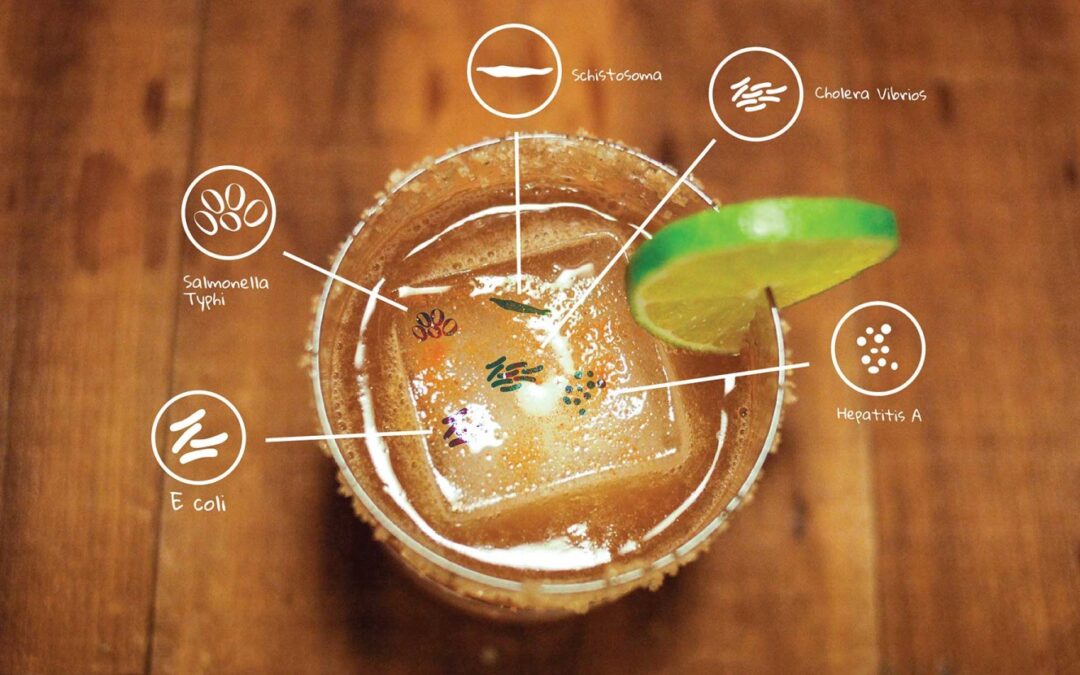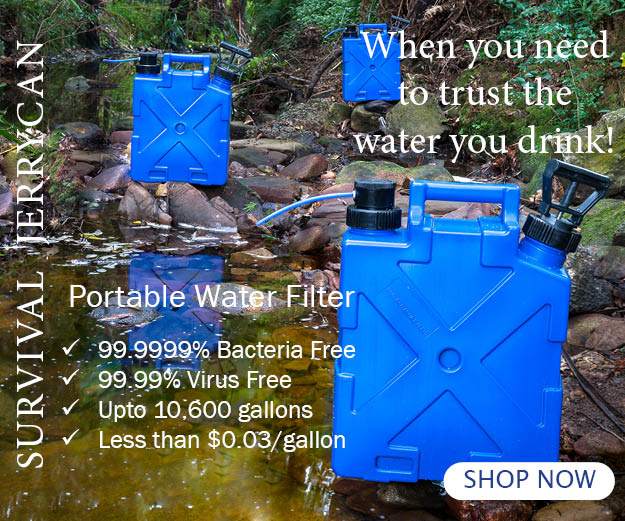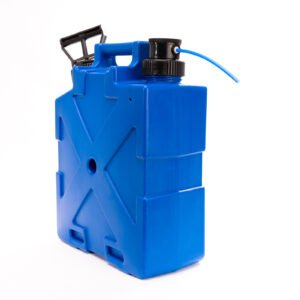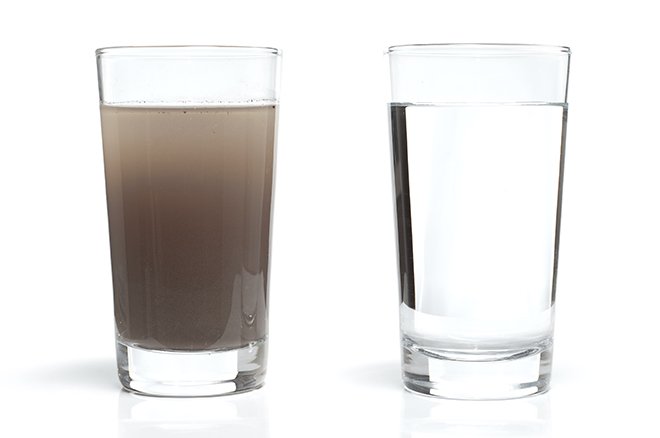
Drinking Dirty Water – Dispelling a few myths about water contamination
Dispelling a few myths about water contamination
‘Oh well,’ you say. ‘I should’ve brought a water purifier, but I didn’t, so I guess I’ll just have to drink from this creek. It has run off the rocks anyway, which might’ve filtered it a little. I’ll be fine, right?’ Ah, famous last words. Drinking dirty water takes many disguises, many of them you will not recognize.
Drinking dirty water is much more serious than one might think. The invisible parts of water can give you cholera, dysentery, amoebas, e.coli or giardia, just to name a few. You could contract various cancers. And as if that wasn’t bad enough, disguised safe drinking water can even give you hepatitis A and E. As lax as you may be about drinking contaminated water, it really isn’t any fun at all.
However, despite the severe implications of water contamination, there are several common misconceptions and myths about drinking dirty water. Let’s dispel a few:
“When the well’s dry, we know the worth of water.”
TRICK: You can clean up water marks from glass vases. Or fill the vase with water and drop in 2 Alka Seltzer tablets.
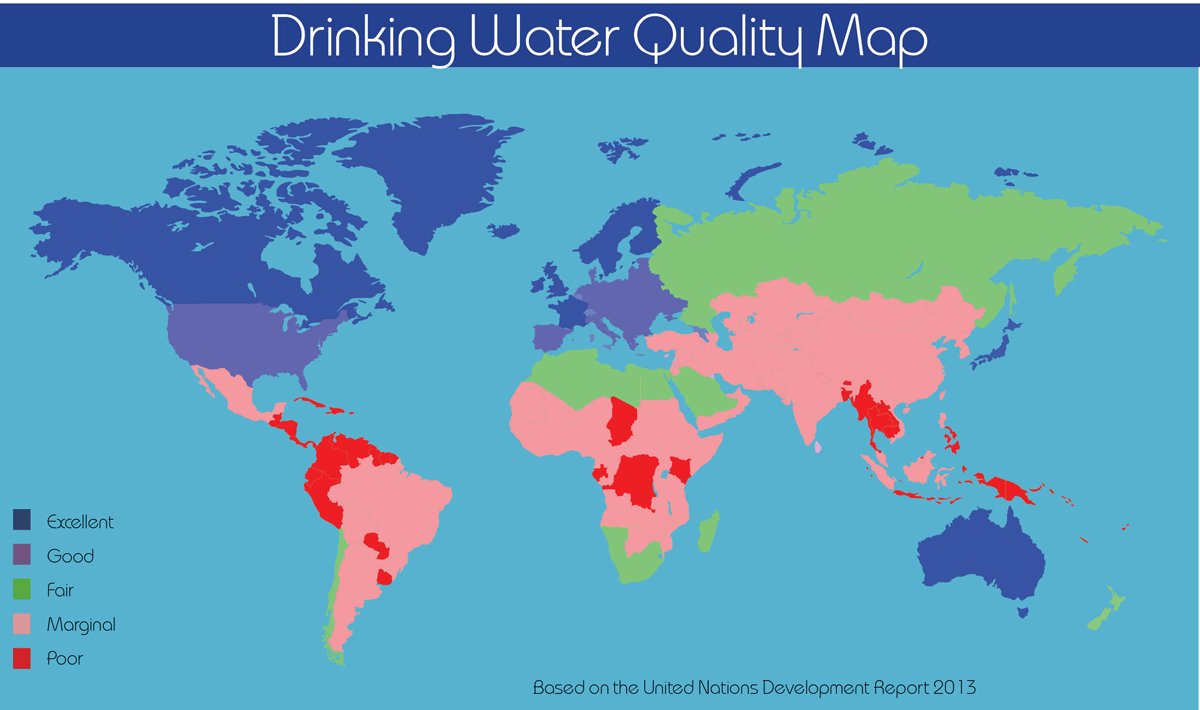
MYTH ONE: If water is dirty, you can tell.
Wrong. Water contamination is sneaky. Water contamination won’t necessarily look brown, murky, or chunky. Tiny microorganisms that aren’t visible to the human eye can live inside dirty water and cause great harm.
MYTH TWO: Dirty water is only a problem in third-world countries.
Wrong. Any water system can become contaminated by run-off from agricultural, household, industrial waste, rusty pipelines, and sewage. Most water systems contain a certain level of water contamination.
MYTH THREE: We will have a water crisis, but not for another 100 years or so.
Wrong. Due to a rising global population, water contamination, and resistance to recycled wastewater, the world is already in a water crisis. A child dies every eight seconds as the direct result of drinking dirty water.
MYTH FOUR: If you end up drinking dirty water, it’s the government’s fault.
Wrong. Water contamination is often the result of lead pipes in the plumbing in your home. Most countries don’t have specific laws to protect you entirely from water contamination. Your health is your responsibility. If you end up drinking dirty water, it’s your own fault, really.
MYTH FIVE: Wastewater is sent to treatment plants and cannot infect us.
Wrong. According to the World Health Organisation, 90% of the world’s wastewater is channeled off into lakes, rivers, and oceans. You could be inadvertently drinking dirty water while you’re swimming.
MYTH SIX: Freshwater is one of the Earth’s most abundant natural resources.
Really very, very, wrong. Only 3% of the water on Earth is fresh. Of this measly 3%, 2% is found in glaciers, and only 0.5% is accessible.
Unfortunately, water contamination is a permanent bi-product of our highly industrialized lifestyles. In order to live a modern life and avoid drinking dirty water, you need to take your health into your own hands. Invest in a water purification system that doesn’t put more chemicals into your body, and water should be pure. Try a Sure Aqua system today.
Did you know nearly 20% of your body mass is Carbon!

